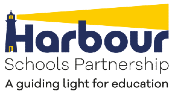Reading
Good literacy skills provide us with the building blocks not just for academic success, but for fulfilling careers and rewarding lives (EEF, 2017).
At St. Margaret's, we believe reading feeds pupils’ imagination and opens up a treasure-house of wonder and joy for curious young minds
It is essential that, by the end of their primary education, all our pupils are able to read fluently, and with confidence, in any subject ready for their forthcoming secondary education.
Our curriculum teaches pupils word-reading skills to read a variety of genres and enable them to be active participants in discussions about texts, using comprehension skills. Pupils enjoy the social element of storytelling and are curious about an author’s choices and background.
Pupils take risks when choosing reading books, by independently exploring their own likes and dislikes. Pupil’s enthusiasm for reading helps them to become successful, life-long learners.
Teaching the Reciprocal Reading skills:
Within our sessions teachers scaffold and plan for the teaching of key reading skills:
Reading is a complex, multifaceted process,
- Predict - Previewing: activating prior knowledge, predicting, and setting a purpose.
- Clarify - Knowing how words work: understanding words through strategic vocabulary development, including the use of graphophonic, syntactic, and semantic cueing systems. Monitoring: asking whether a text makes sense and clarifying by adapting strategic processes
- Question - Self-questioning: generating questions to guide reading
- Infer - finding the hidden meaning - making connections: relating reading to self, text, and world, creating mental pictures
- Explain - making judgments
- Summarise - synthesizing important ideas
Reading Implementation
The teaching of reading focuses on two main strands: language comprehension and word recognition. Skilled readers develop when they have a firm grasp of both strands as demonstrated by Scarborough’s Reading Rope (2001).
Word recognition: Word recognition begins with early reading through a systematic synthetic approach to phonics teaching. At St. Margaret's, objectives and progression are based on the Letters and Sounds strategy; however, teachers use this in combination with Read, Write, Inc, and Sounds Write resources to ensure the needs of all pupils are met.
Language comprehension: The drawing together of knowledge to develop reasoning and understanding is essential for language comprehension. The four skills of reading – predicting, clarifying, questioning and summarising - form the foundations for this process and underpin all strategies for the teaching of reading. Learning objectives are taken from school progression documents and are tracked using an assessment programme called SIMs.
Teachers meet the needs of all learners by developing these skills in:
- Whole class shared text time (daily adult led sessions where pupils listen and respond to a high quality text.)
- One-to-one reading sessions (collaborative adult and child sessions, where the adult facilitates progress by addressing individual barriers to learning)
- Whole class guided-reading sessions (adult led sessions, where a text has been chosen to stretch and challenge and is followed up by a high quality teaching and learning activity)
- Independent reading (parents are encouraged to question pupils about their reading books, and children respond and write book reviews)
- Cross curricular reading (pupils use texts in other subject areas to retrieve information, learn new knowledge or develop skills)




